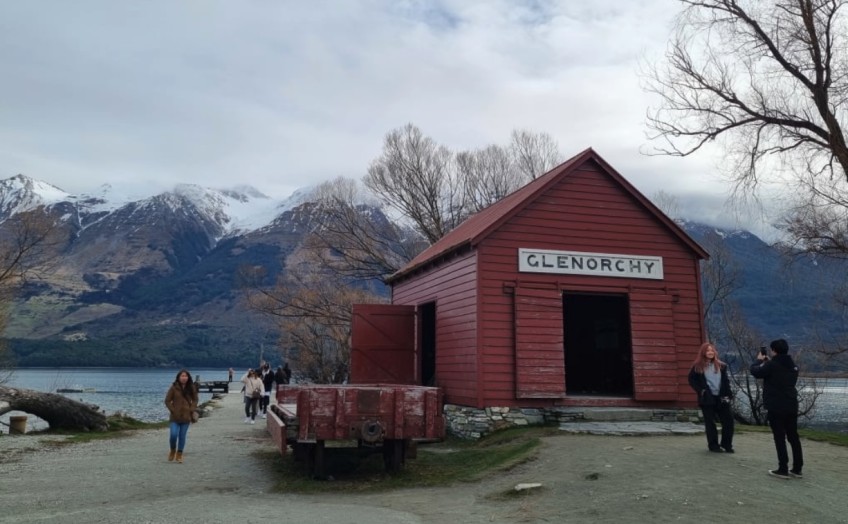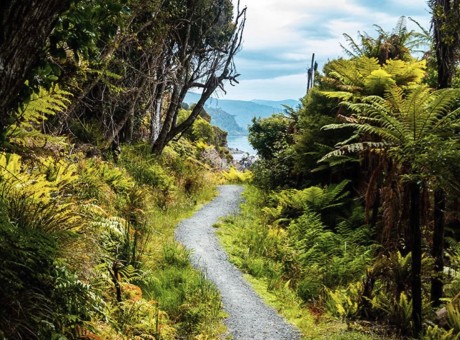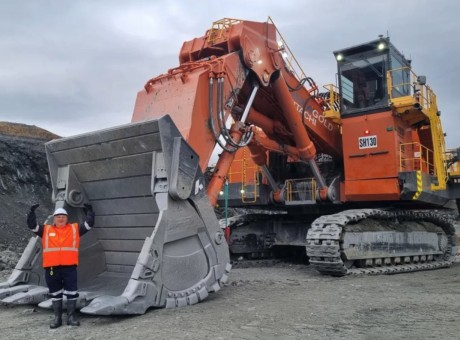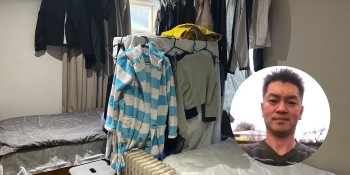What the new tourism minister is looking at to boost the industry

Tourism and Hospitality Minister Matt Doocey says nothing is off the table when it comes to helping fund the industry and the vital infrastructure it needs.
Doocey has been touring the country, meeting with operators and regional tourism operators in the past few weeks and listening to what they want and their concerns.
He wanted to find out how they could support the sector grow and become a big part of the economic success of Aotearoa.
"Some regions like Queenstown have already reached pre-Covid levels and then there's other areas like Rotorua and Dunedin who are still looking to see those visitors come back," Doocey said.
During his travels, he said better funding was one of the issues the industry kept raising.
It was important for regions to have the visitor infrastructure necessary to accommodate for visitors and put less strain on communities, Doocey said.
The $35 International Visitor Levy generates about $80-90 million a year, split in half between tourism and conservation.
But some areas like Queenstown, with its small ratepayer base, have been considering options like bed taxes to cover costs.
"For me, there's is nothing off the table at the moment about understanding how we better resource tourism as well, because what I want tourism to do is to grow," Doocey said.
Part of that was also ensuring the welcome mat was being rolled out for all tourists, not just those with cash to spare.
The previous government copped criticism about comments suggesting the country wanted to attract discerning travellers and not those travelling on a shoestring.
But Doocey said budget travellers and backpackers were welcome.
"It's the type of market that can go into some of the smaller, rural parts of New Zealand, and spend their hard earned money in the local cafes, in the accommodation providers and even take up a job working in those tourism operations as well.
"Look, I want to welcome all tourists to New Zealand."
During their political campaign last year, the National Party promised to create a new 80km Great Walk at Waiau Toa/ Molesworth, to lift the upper age bracket for working holiday visa holders from 30 to 35 years and allow people to apply for a second and third work visa as long as worker shortages continue.
Electrifying cycle trails with $3m set aside to co-invest in e-bike charges, promoting regional events with a contestable fund worth $5m over four years, and fixing the concessions on the DOC estate were other campaign promises.
The $22m tourism package over four years would be funded by the International Visitor Levy.
Doocey said he was working with officials on the new policies and how to implement them.
"I've got all confidence that I seek the advice from the officials looking at putting milestones in around implementation and getting those policies open."
But he wanted to work with the sector on the policy proposals.
"I want to do that in consultation with the sector because I think we'll get better outcomes around those manifesto commitments."
Since taking power, the coalition government had paused the tourism industry's transformation plan that was aimed to transform tourism in Aotearoa to a more regenerative model.
Doocey said they wound back work on the plan across government departments.
"We believe that there was a large amount of work that was being undertaken by consultants that was very expensive, and was going to add no value to the sector whatsoever," he said.
The Christchurch tram is popular with tourists Photo: 123rf
He has asked officials for advice on how to continue work on better quality data as it was a key issue for businesses.
"There is obviously an issue around the Milford Opportunities Project and what that's trying to achieve on the area of Milford. It's a work that's already incurred about $13 million of costs."
The Milford Opportunities Project was unveiled in 2021 and outlines a vision for Piopiotahi including banning cruise ships from entering Milford Sound, and charging overseas visitors a fee.
It received an initial $15 million boost from the previous government.
Doocey visited Fiordland this week to speak to operators about how they wanted work on the project to continue and what it was trying to achieve.
While some projects would be examined closely, he was more relaxed about others.
He was happy to allow the law regulating self-contained vehicles to go through its natural review process before responding to any feedback on the Bill.
Doocey said his aim was to give businesses certainty and predictability, and with a background in both tourism and hospitality, he was confident he could make a difference.






















